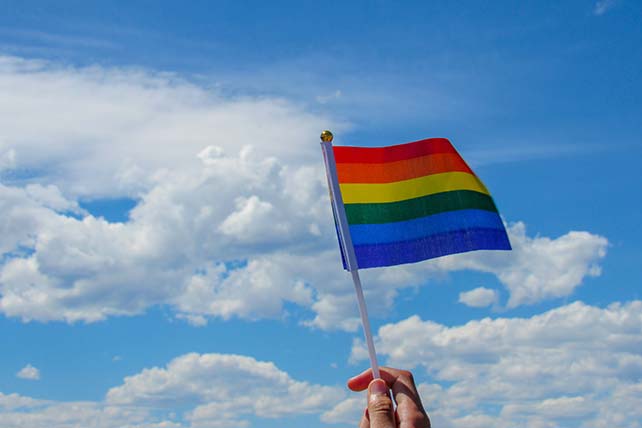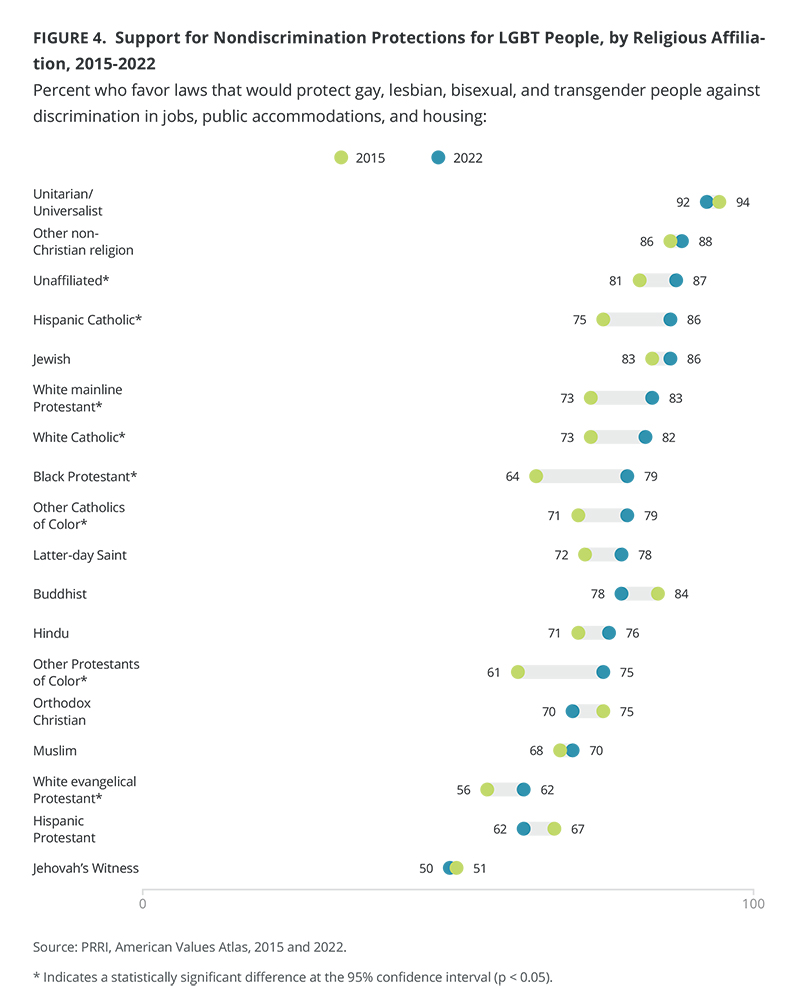(RNS) — For the most part, religious Americans say their LGBTQ neighbors should be free of discrimination when they are at work, in public or at home.
This is true even among groups that oppose same-sex marriage.
One place they disagree is over whether businesses — such as cake bakers or other vendors — ever have the right to refuse service. On that issue, Americans are split along religious and party lines.
Meanwhile, almost half of LGBTQ Americans are young and claim no religion.
Those are among the findings of a new report on polarization and LGBTQ rights from the Washington, D.C.-based Public Religion Research Institute. The report, based on data from PRRI’s 2022 American Values Atlas, looked at the views of 22,984 adults living in all 50 states.
PRRI’s researchers found that about 10% of Americans overall — almost half (46%) of them under the age of 30 — identify as LGBTQ: 3% as gay or lesbian, 4% as bisexual and 2% as something else. Nearly one-quarter of Americans under 30 identify as LGBTQ (23%).
RELATED: LGBTQ-Affirming School District Bans Student-Teachers From Arizona Christian University
According to the report, LGBTQ Americans are more likely to have no religious affiliation (50%) than Americans in general (26%). They are also much more likely to be Democrats (48%) than Republicans (8%).
Among non-Christian Americans, about 1 in 5 identify as LGBTQ, according to the report.
“This includes 19% of Unitarian Universalists, 19% of the religiously unaffiliated, 15% of Buddhists, 11% of Jews, 9% of Muslims, 5% of Hindus, and 32% of members of other non-Christian religions,” according to the report. “Members of Christian religious traditions are less likely to identify as LGBTQ, with the exception of Hispanic Protestants (12%).”
“Support for Nondiscrimination Protections for LGBT People, by Religious Affiliation, 2015-2022” Graphic courtesy of PRRI
Researchers from PRRI found that most religious groups, from 92% of Unitarian Universalists to 62% of white evangelical Protestants, support anti-discrimination laws. This includes Jews (86%), Hispanic Catholics (86%), Black Protestants (79%), Latter-day Saints (78%), Hindus (76%) and Hispanic Protestants (62%). Jehovah’s Witnesses (50%) are the religious group least likely to support such laws.
When it comes to views of small businesses that want to refuse to provide products or services to lesbian or gay people, faith groups were more divided. Unitarian Universalists (88%), Hispanic Catholics (78%), Hindus (77%) and people of other non-Christian faiths (77%) were most likely to oppose the idea of refusing service. White evangelical Protestants (37%), Latter-day Saints (46%), Jehovah’s Witnesses (50%) and Orthodox Christians (51%) were less likely.


